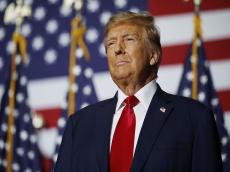|
|
TODAY.AZ / World news
Trump blocks Samsung and SK from exporting U.S. chip equipment to China
21 June 2025 [19:55] - TODAY.AZ

By Alimat Aliyeva
The Donald Trump administration announced that U.S. equipment cannot be supplied to Korean chipmakers’ factories in China, as reported by The Wall Street Journal on Friday, Azernews reports, citing Korean media.
Jeffrey Kessler, Under Secretary of Commerce for Industry and Security at the U.S. Commerce Department, informed Samsung Electronics and SK hynix this week that he is considering revoking the exemptions that allowed these companies to bypass the requirement of filing applications when supplying U.S.-made equipment to their factories in China, according to the report.
Interestingly, Taiwanese chipmaker TSMC is also reportedly subject to Kessler’s new measure.
This move appears to be part of a broader effort by the U.S. to prevent its technology from entering Chinese factories, specifically in the semiconductor sector.
In October 2022, the U.S. government imposed a ban on U.S. companies from exporting certain advanced semiconductor equipment to Chinese chipmakers. At that time, China-based factories operated by Samsung Electronics and SK hynix were granted exemptions from the ban. The recent development suggests that these exemptions may soon be revoked.
This decision is likely part of ongoing tensions between the U.S. and China over technology and national security. Semiconductor technology, especially in areas like advanced chip manufacturing, is seen as a critical strategic asset in global geopolitics. The U.S. has long been concerned about the potential use of its advanced technology in military or espionage applications by China.
For Samsung and SK hynix, which rely heavily on China as a major manufacturing base, this could significantly disrupt their supply chains and potentially delay or limit production of cutting-edge chips. The impact on global semiconductor markets could be considerable, given the vital role China plays in the global tech ecosystem.
Moreover, TSMC's inclusion in the measure could signal broader efforts to control the flow of technology to China, even for companies that have traditionally been seen as more neutral players in the trade conflict.
This also highlights the growing trend of "tech decoupling" between the U.S. and China, where both sides are increasingly looking to develop self-reliant tech ecosystems and reduce dependence on each other for critical components like semiconductors.
URL: http://www.today.az/news/regions/260041.html
 Print version
Print version
Connect with us. Get latest news and updates.
See Also
- 21 June 2025 [23:30]
Apple wants to develop new processors using AI - 21 June 2025 [22:25]
24M introduces groundbreaking EV Battery offering 1000-mile range and ultra-fast charging - 21 June 2025 [21:23]
Thailand's economic recovery at risk amid political turmoil - 21 June 2025 [19:55]
Trump blocks Samsung and SK from exporting U.S. chip equipment to China - 21 June 2025 [09:00]
ChatGPT can reduce critical thinking skills - 21 June 2025 [08:00]
Listening to loud music with headphones can increase risk of dementia - 21 June 2025 [01:19]
President Erdo?an and Prime Minister Pashinyan discuss S Caucasus peace in Istanbul - 20 June 2025 [23:35]
Australian trial says tech for social media teen ban can work - 20 June 2025 [21:22]
Adobe launches 'Project Indigo', free-to-use iPhone app for SLR-style photos - 20 June 2025 [18:40]
EU recommends Bulgaria as 21st eurozone member for 2026
Most Popular
 President Ilham Aliyev receives CEO of bp
President Ilham Aliyev receives CEO of bp
 Next-gen air defense shield achieves full integration milestone
Next-gen air defense shield achieves full integration milestone
 Canada expresses gratitude to Azerbaijan for assistance in Iran evacuation
Canada expresses gratitude to Azerbaijan for assistance in Iran evacuation
 Azerbaijan and World Bank discuss strategic directions of new CPF for 2025–2029
Azerbaijan and World Bank discuss strategic directions of new CPF for 2025–2029
 PM Ali Asadov meets with bp CEO Murray Auchincloss
PM Ali Asadov meets with bp CEO Murray Auchincloss
 Solovyov brought the Armenians to the top of their voices
Solovyov brought the Armenians to the top of their voices
 Trial continues in Baku Military Court over mine-laying in formerly occupied Azerbaijani territories
Trial continues in Baku Military Court over mine-laying in formerly occupied Azerbaijani territories
